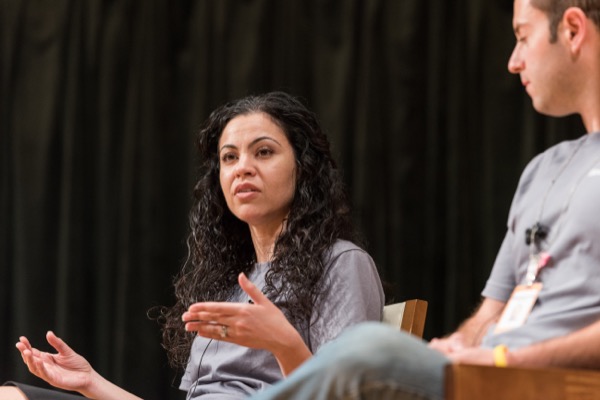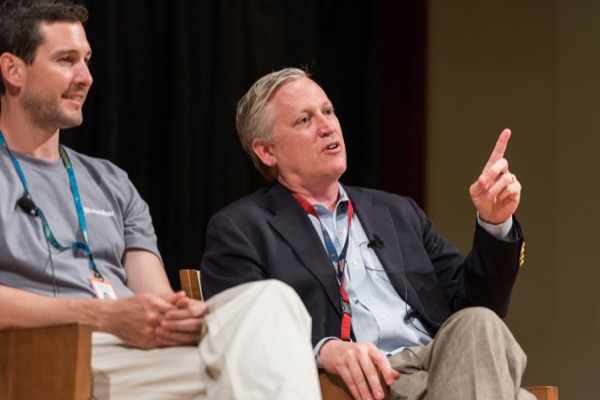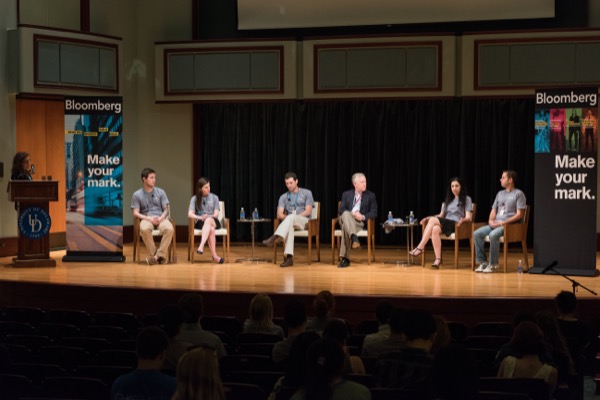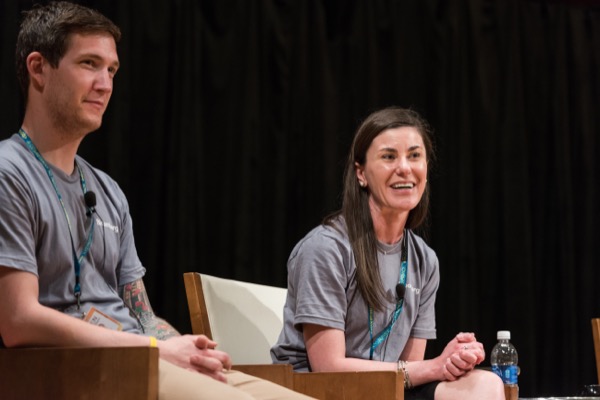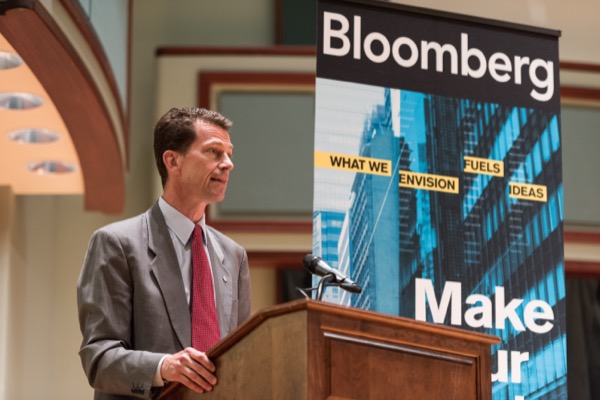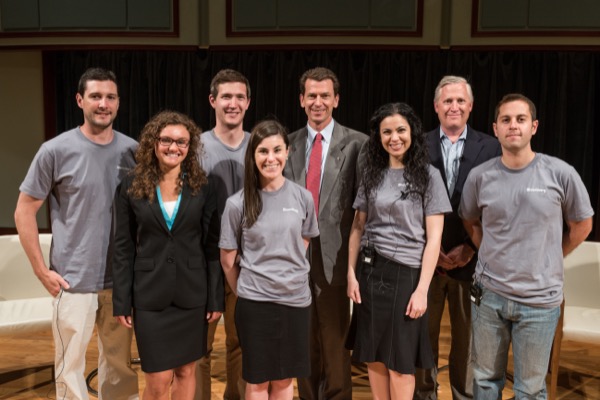Industry insight
Discussion provides UD students with industry advice from Bloomberg professionals
8:58 a.m., May 29, 2015--A group of leading professionals from Bloomberg L.P. offered insight and advice to University of Delaware students during a student-led panel discussion on “The Path to Industry Success.”
Rebecca Leisher, a UD business administration and economics student, moderated the panel, which included:
Campus Stories
From graduates, faculty
Doctoral hooding
- Paul Sweeney, U.S. director of research and senior analyst, Bloomberg Intelligence.
- Rosana Bitar, head of Bloomberg’s department of fixed income, funds and holdings data.
- Ken Mackiewicz, software development manager and head of the equity research analysis team in Bloomberg’s research and development department, UD civil and environmental engineering and computer and information sciences alumnus.
- Ben Zimmerman, head of Bloomberg’s technology implementation group.
- Brendan Reskakis, institutional salesperson within Bloomberg’s core terminal department, UD finance alumnus.
- Danielle Shannon, manager of global customer support, Bloomberg.
Panelists discussed critical subjects for graduating students, like the always-important job interview, from a number of angles.
Zimmerman said the interviewees who stand out the most are the ones who are the most passionate.
“Showing that you have a passion for something, showing that you care and will do something with it, definitely helps in the interview process and demonstrates your ability to perform those tasks,” he said.
Reskakis added that being a strong communicator is crucial, explaining that while a person’s resume earns them the interview, “It’s really the things that don’t show up on the resume that, in that interview room, are the most important.”
“We’re primarily looking for the full package,” agreed Bitar. “But that full package can look different for everybody.”
Bitar explained that students should also think of the interview as a two-way street.
“It’s very important for you to be interviewing the companies that you’re speaking with as much as we are interviewing you,” she said. “Ask questions about things like engagement with the community, philanthropy, benefits, everything that you think would tell you what that culture of the company is.”
Sweeney gave similar advice, saying that students should “flip the tables” by sizing up potential employers during the interview process.
He said that students should look for employers who invest in themselves and their employees by providing training and opportunities for growth.
“For a new employee coming in at entry level, they’re simple questions,” he said. “What kind of training do you have for me? How do you develop me? If I work hard, do well and fulfill my end of the obligation, what do I get in return?
“Make sure when you’re talking to companies that you do have those opportunities, that they will invest in you, that they will invest in their business,” he said.
Sweeney also emphasized the importance of going global, discussing Bloomberg’s 153 offices around the world and successful work with rapidly growing markets in Asia and Latin America.
“As a global company, we can see what parts of the world are growing,” he said, calling Bloomberg “the most global company I’ve ever worked for.”
Other panelists also shared ways in which Bloomberg is a unique employer, including the company’s lack of official assigned job titles and large, open communal workspaces without partitioned offices.
“It’s just a powerful place,” said Mackiewicz of his workspace at Bloomberg. “You walk in and the energy is apparent. I felt that from day one.”
After taking questions from the audience, Leisher ended the panel discussion with a unique question: “If you could give yourself one piece of advice at age 20, what would it be?”
Some answers were specific, from investing in a 401k to working on active listening skills. Others discussed the importance of keeping an open mind in career planning.
Bitar told students not to keep themselves in a box by insistently sticking to a certain path to their future goals.
“Take the scenic route,” Bitar said. “You can meet a lot of people and work on a lot of different opportunities, as long as you’re open and flexible to things that are presented to you. So don’t shut doors.”
Shannon agreed, telling students to “be open to change.”
“Being able to explore different opportunities and get to know different people and personalities has really opened my professional career and helped develop me as a person.”
Article by Sunny Rosen
Photos by Evan Krape






